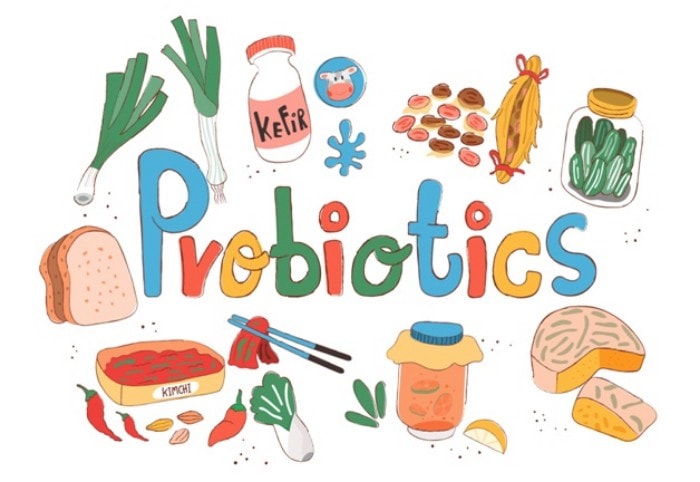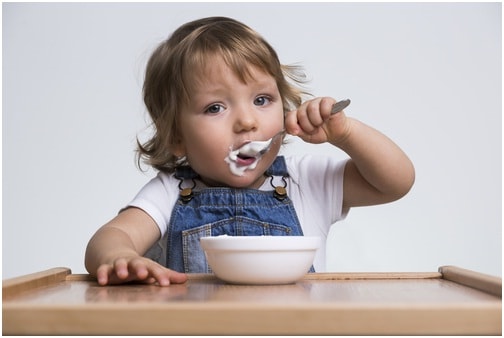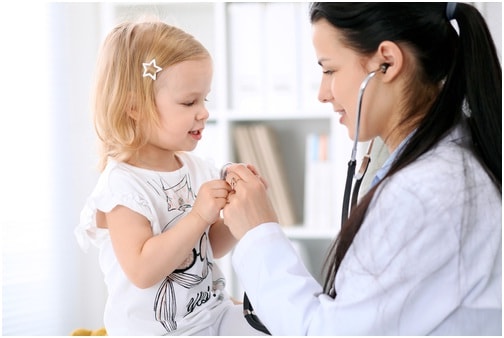
Probiotics, the “good bacteria” you keep hearing about, are used by our bodies on a range of missions, from quelling digestive upset to maintaining immune function. When our natural bacterial balance gets out of whack, it can trigger various physiological troubles, especially in the digestive tract. To get some friendly bacteria back into our system, many adults take probiotic supplements or consume probiotic-rich foods, such as fermented vegetables and yogurt.
But are these naturally occurring wonder-workers safe for kids when taken as supplements? Probiotics have the unique ability to work miracles in the digestive system and they demonstrate a relatively low occurrence of side effects. Theoretically, they could be employed to treat a slew of ailments that impact babies, toddlers and kids, including:
- Persistent colic
- Poor immune system
- Cold and flu
- Antibiotic-associated diarrhea
- Infectious diarrhea, including rotavirus
- Skin conditions, including eczema
- Food allergies
- Asthma
Available Research
Sounds promising, right? But, as a parent, safety is no doubt of the utmost importance to you when attempting to make your little one feel better. Let’s take a look at some of the available research regarding children and probiotics to get a snapshot of the safety and efficacy of this intriguing treatment.
- Probiotics and Premature Babies — A study from 2014 found that probiotics were beneficial in treating necrotizing enterocolitis, a serious intestinal inflammation that occurs in preemies. As a result of this research and other studies, all premature babies born under a certain birth weight at UC Davis Children’s Hospital are given probiotics. The practice is already common, and widely accepted, in Australia, Japan, Sweden and Finland.
- Probiotics and Kids Taking Antibiotics — Various studies have shown that probiotics can be beneficial to kids who have diarrhea, especially those who develop the condition as a result of taking antibiotics. One study, published in JAMA Pediatrics, showed that giving infants and children probiotics while taking antibiotics helped to reduce and shorten bouts of antibiotic-associated diarrhea.
- Probiotics and Infections-associated Diarrhea in Kids — Various studies have confirmed the efficacy of probiotics when used to treat infection-associated diarrhea in children, primarily in the case of acute rotavirus. Researchers found that Lactobacillus rhamnosus and other good bacteria strains could help shorten the duration of rotavirus-related diarrhea in children ages one to six.
- Probiotics and Eczema in Kids — Bacteria play a large role in the overall health of the skin, and when too much of the bad strains are allowed to flourish, eczema (atopic dermatitis) and other skin conditions can occur. According to the National Eczema Association, research showed that probiotics given twice a day to children with atopic dermatitis led to significant improvements compared to the placebo. Similar studies have confirmed the ability of probiotics to help prevent eczema in children.

- Probiotics and Allergies in Kids —A cure for peanut allergies? Not quite, but researchers may be getting close. An Australian study published in 2017 monitored a group of children who were administered a new immunotherapy treatment, which combined probiotics with small doses of peanuts. The results were promising — the majority of kids saw a reduction in allergic reaction to peanuts at the culmination of the study. Researchers believe that introducing allergic kids to small traces of peanuts may reduce their allergies, while the probiotics improve the digestive system’s ability to tolerate them.
- Probiotics and Asthma in Kids — Scientists theorize that bacteria found in babies’ guts affect their chances of developing asthma, so there is ongoing research studying the effects of probiotics on the respiratory system. While more research is needed, initial studies have shown some promise. For example, in one study from the São Paulo Research Foundation, mice who were fed the common probiotic Bifidobacterium longum showed reduced mucus in the lungs, decreased inflammatory blood markers and decreased airway hyperactivity, which trigger asthma symptoms.
What’s the Bottom Line? Probiotics Are Probably Not Harmful
Overall, research indicates that probiotics are not harmful when given to children, even in infancy. In fact, kids get the same friendly bacteria even as newborns, primarily through probiotic-rich breast milk. As they grow, children consume probiotics in foods and milk, even if it’s unintended. While they are generally considered safe, some medical professionals advise against the use of probiotics in people who are critically ill or have immune system problems.
With all of this in mind, you should continue to monitor the ongoing research surrounding probiotics and make informed decisions as the scientific community learns more. Gut health is one of the hottest new frontiers in science, so we’ll undoubtedly see much more research emerge about this topic in the coming years.
How to Give Kids Probiotics
Before you give your child probiotics, it’s a smart idea to ask his or her pediatrician for advice. Your child’s medical history or an existing treatment plan may rule out these supplements as a viable treatment, so it’s always a good idea to consult a doctor. There are a number of kid-friendly probiotic supplements on the market to help you administer safe probiotic supplementation in the form of gummies, powders and capsules at the right dosage. If you’re not comfortable with supplements, you can test the probiotic waters with yogurt and whole milk.

Conclusion
As with anything you give your child, careful consideration should be taken when using probiotics to treat any and all of their health concerns. Because probiotics are considered a relatively gentle way to address digestive issues, and there is no evidence to suggest that they are in any way harmful to children, the risk is low. Working with a pediatrician and closely following dosage recommendations will help ensure that your little one feels great with no added side effects!
